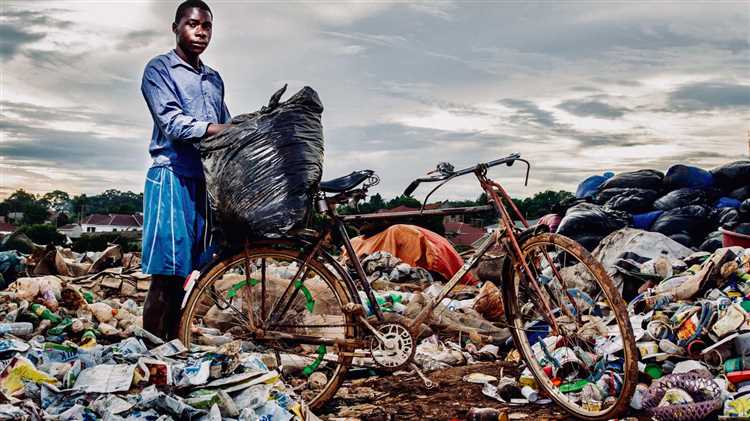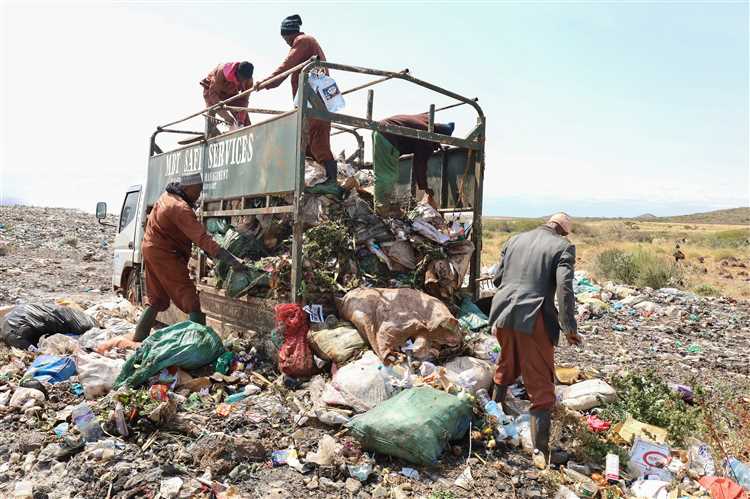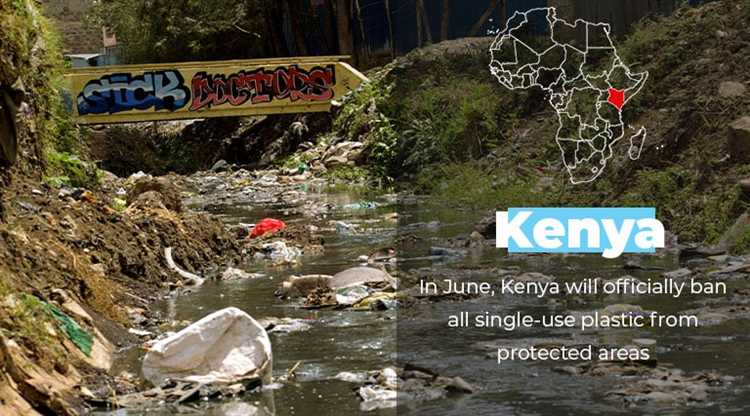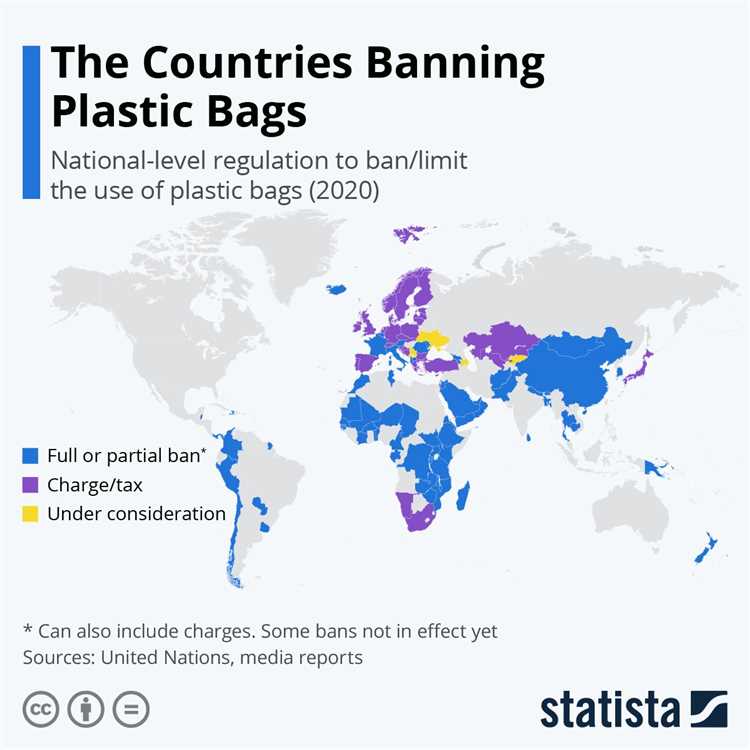In recent years, Africa has emerged as a global leader in the fight against plastic pollution. Recognizing the devastating impact that plastic bags have on the environment, many African countries have taken bold steps to ban or significantly restrict their use. This proactive approach is not only reducing plastic waste but also raising awareness about the importance of protecting our planet for future generations.
Plastic bags are a ubiquitous sight in many parts of Africa, where they have become a symbol of convenience and affordability. However, their convenience comes at a steep cost – plastic bags are non-biodegradable and can take hundreds of years to decompose. They often end up in rivers, lakes, and oceans, posing a serious threat to marine life and ecosystems.
Recognizing the urgent need to address this issue, several African countries have implemented stringent measures to curb the use of plastic bags. Rwanda, for example, introduced a nationwide ban on plastic bags in 2008, making it one of the first countries in the world to take such a decisive action. Other countries, such as Kenya and Tanzania, followed suit with their own bans, imposing heavy fines and even jail terms for those found in possession of plastic bags.
The impact of these bans has been significant. In Rwanda, for instance, the ban has led to a noticeable reduction in plastic waste and improved environmental conditions. The country has also seen a surge in innovative alternatives to plastic bags, such as biodegradable bags made from banana leaves. This shift towards eco-friendly alternatives has not only benefited the environment but also created new economic opportunities.
While the plastic bag ban in Africa is undoubtedly a step in the right direction, there is still more work to be done. Education and awareness campaigns are crucial in encouraging behavior change and promoting sustainable practices. Governments, NGOs, and individuals alike must continue to collaborate and innovate to find effective solutions to plastic pollution. By working together, Africa can lead the way in creating a cleaner, more sustainable future for all.
- Overview of the Plastic Bag Ban in Africa
- Legal Framework
- Impact on the Environment
- Challenges and Successes
- Reasons for Implementing the Ban
- Environmental Impact of Plastic Bags
- Long-Term Consequences of Plastic Bag Pollution
- Q&A:
- Why is there a plastic bag ban in Africa?
- When did the plastic bag ban in Africa start?
- How are African countries enforcing the plastic bag ban?
- What are the alternative packaging materials being promoted in Africa?
- What impact has the plastic bag ban had on the environment in Africa?
Overview of the Plastic Bag Ban in Africa
Plastic pollution has become a global concern, and African countries have taken significant steps to combat this environmental issue. In recent years, several nations in Africa have implemented strict regulations and bans on plastic bags to reduce their environmental impact and promote sustainability.
Legal Framework
A number of African countries have passed legislation to ban or restrict the use of plastic bags. For example, Kenya was one of the first African countries to impose a complete ban on the production, sale, and use of plastic bags in 2017. Other countries, such as Rwanda, Tanzania, and South Africa, have also implemented similar measures.
Impact on the Environment

Plastic bags are known for their long-lasting presence in the environment. They can take hundreds of years to decompose, leading to immense environmental damage. The ban on plastic bags in Africa has significantly reduced river and ocean pollution, as well as the negative effects on wildlife. Encouraging alternative options, such as reusable bags, has also helped to minimize waste and protect ecosystems.
| Country | Year of Ban |
|---|---|
| Kenya | 2017 |
| Rwanda | 2008 |
| Tanzania | 2019 |
| South Africa | 2003 |
Challenges and Successes

Implementing a plastic bag ban in Africa has not been without its challenges. One of the main difficulties has been changing consumer behavior and promoting the use of alternative packaging materials. However, despite these challenges, the continent has witnessed significant successes. The ban has resulted in cleaner cities, reduced landfill usage, and increased awareness about the detrimental effects of plastic on the environment.
Overall, the plastic bag ban in Africa is an important step towards environmental sustainability. It serves as an example for other regions around the world to follow, demonstrating that collective efforts can make a significant impact in combating plastic pollution and protecting our planet.
Reasons for Implementing the Ban

There are several key reasons why many African countries have chosen to implement a ban on plastic bags:
1. Environmental Impact: Plastic bags are a major contributor to environmental pollution and pose a significant threat to wildlife. They take hundreds of years to decompose and often end up in oceans, rivers, and landfills, releasing toxic chemicals and harming marine life.
2. Natural Resource Conservation: The production of plastic bags contributes to the depletion of natural resources such as petroleum and natural gas. By implementing a ban, African countries aim to conserve these resources for future generations.
3. Health Concerns: Plastic bags break down over time, releasing microplastics into the environment. These microplastics can contaminate soil, water, and food sources, posing potential health risks to both humans and animals.
4. Waste Management Challenges: Plastic bags are often not properly disposed of and can clog drainage systems, leading to flooding during heavy rains. Additionally, the collection and disposal of plastic waste are costly and require significant resources.
5. Encouraging Sustainable Alternatives: The ban on plastic bags aims to encourage the use of more sustainable alternatives, such as reusable bags made from natural materials like cotton or tote bags made from recycled materials.
6. Economic Opportunities: By banning plastic bags, African countries are opening up opportunities for the development of local industries that produce eco-friendly alternatives. This can create new jobs and stimulate economic growth.
7. International Support: The global community has increasingly recognized the need to address plastic pollution, and many African countries are implementing the ban in line with international agreements and initiatives aimed at reducing single-use plastic.
Overall, the ban on plastic bags in Africa represents a proactive and responsible approach to protecting the environment, conserving natural resources, and promoting a sustainable future for the continent.
Environmental Impact of Plastic Bags

Plastic bags have become a major environmental concern in Africa due to their harmful impact on ecosystems. These bags, which are made from non-biodegradable materials, take hundreds of years to decompose and often end up in landfills or polluting waterways.
One of the main ecological consequences of plastic bags is their contribution to marine pollution. When plastic bags end up in rivers, lakes, or oceans, they pose a serious threat to marine life. Marine animals can mistake these bags for food, leading to ingestion and suffocation. Additionally, plastic bags release harmful chemical compounds when they break down, further polluting water and harming aquatic organisms.
In addition to marine pollution, plastic bags also have a negative impact on terrestrial ecosystems. When not properly disposed of, these bags can clog drainage systems, leading to flooding in urban areas. They can also leach toxic chemicals into the soil, affecting plant growth and disrupting natural nutrient cycles.
Furthermore, the production of plastic bags contributes to greenhouse gas emissions and depletes fossil fuel resources. The extraction and refining of the raw materials needed for plastic bag production result in the release of carbon dioxide and other greenhouse gases. Additionally, the energy-intensive manufacturing process contributes to the depletion of non-renewable resources.
Overall, the environmental impact of plastic bags is significant and far-reaching. It is crucial for African countries to continue taking steps to reduce the use of these bags and promote more sustainable alternatives to protect their ecosystems and combat climate change.
Long-Term Consequences of Plastic Bag Pollution
Plastic bag pollution has become a significant environmental concern, not only in Africa but around the world. The long-term consequences of plastic bag pollution are far-reaching and can have devastating effects on ecosystems and human health.
Plastic bags take hundreds of years to decompose, and during this time, they break down into smaller fragments known as microplastics. These microplastics can be ingested by marine animals, leading to serious health issues and even death. Additionally, the presence of plastic bags in water bodies can disrupt aquatic ecosystems by blocking sunlight and reducing oxygen levels.
In terrestrial environments, plastic bags litter landscapes, affecting soil health and hindering plant growth. As plastic bags degrade, they release toxic chemicals into the soil, which can contaminate groundwater and impact the health of humans and wildlife who rely on these water sources.
The improper disposal of plastic bags also contributes to urban flooding. Clogged drainage systems caused by plastic bags can lead to waterlogging during heavy rains, increasing the risk of waterborne diseases and property damage.
Furthermore, plastic bag pollution has economic implications. The tourism industry, for example, highly dependent on clean and pristine environments, can suffer due to the negative impact of plastic bag pollution on natural landscapes. Coastal areas, which attract tourists for their beautiful beaches, can become polluted and unattractive, resulting in decreased tourism revenue.
Recognizing the long-term consequences of plastic bag pollution, countries in Africa have begun taking steps to reduce plastic bag usage. These efforts include banning the production, sale, and use of plastic bags or implementing fees and taxes to discourage their use. By adopting sustainable alternatives and promoting awareness about the environmental impact of plastic bags, Africa is paving the way for a greener and cleaner future.
Q&A:
Why is there a plastic bag ban in Africa?
There is a plastic bag ban in Africa because plastic bags have a significant negative impact on the environment. They take a long time to break down, often ending up in rivers and oceans, where they harm marine life. Additionally, plastic bags contribute to pollution and litter in cities and rural areas alike.
When did the plastic bag ban in Africa start?
The plastic bag ban in Africa started in 2003 in South Africa, making it the first country on the continent to implement such a ban. Since then, many other countries in Africa have followed suit and introduced their own regulations to reduce plastic bag usage.
How are African countries enforcing the plastic bag ban?
African countries are enforcing the plastic bag ban through various measures. These include imposing fines or imprisonment for individuals found using or manufacturing plastic bags, conducting regular inspections of businesses to ensure compliance, raising awareness among the general public about the ban, and promoting the use of alternative packaging materials.
What are the alternative packaging materials being promoted in Africa?
In Africa, alternative packaging materials being promoted to replace plastic bags include paper bags, reusable cloth bags, biodegradable bags made from materials like cornstarch, and banana leaves. These materials are more environmentally friendly and can easily be recycled or decomposed.
What impact has the plastic bag ban had on the environment in Africa?
The plastic bag ban has had a positive impact on the environment in Africa. It has resulted in a significant reduction in the amount of plastic waste in cities and rural areas, leading to cleaner streets, rivers, and oceans. It has also raised awareness about the importance of environmental conservation and has encouraged the use of more sustainable packaging options.